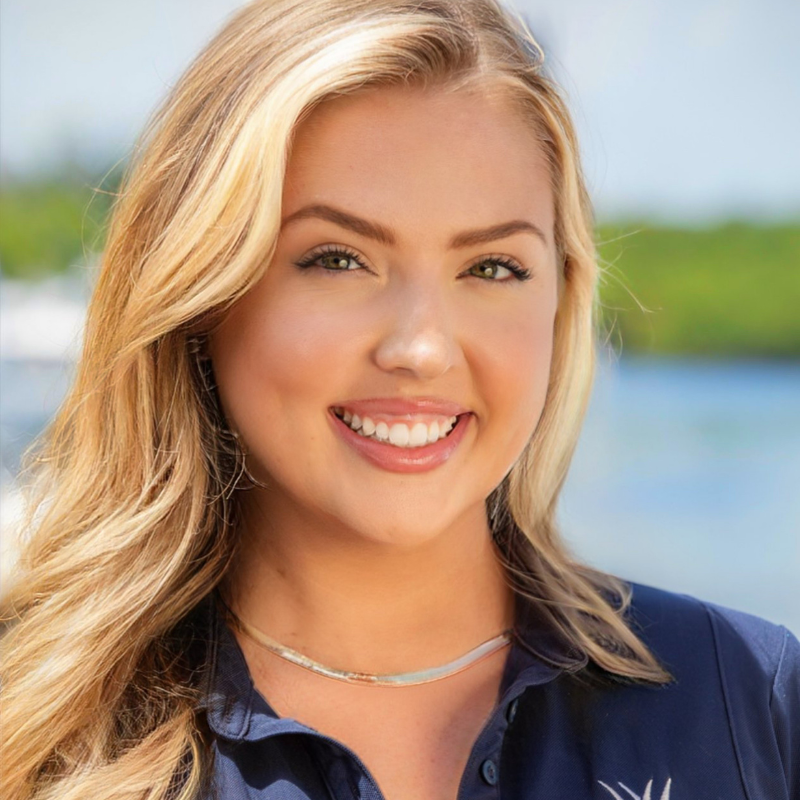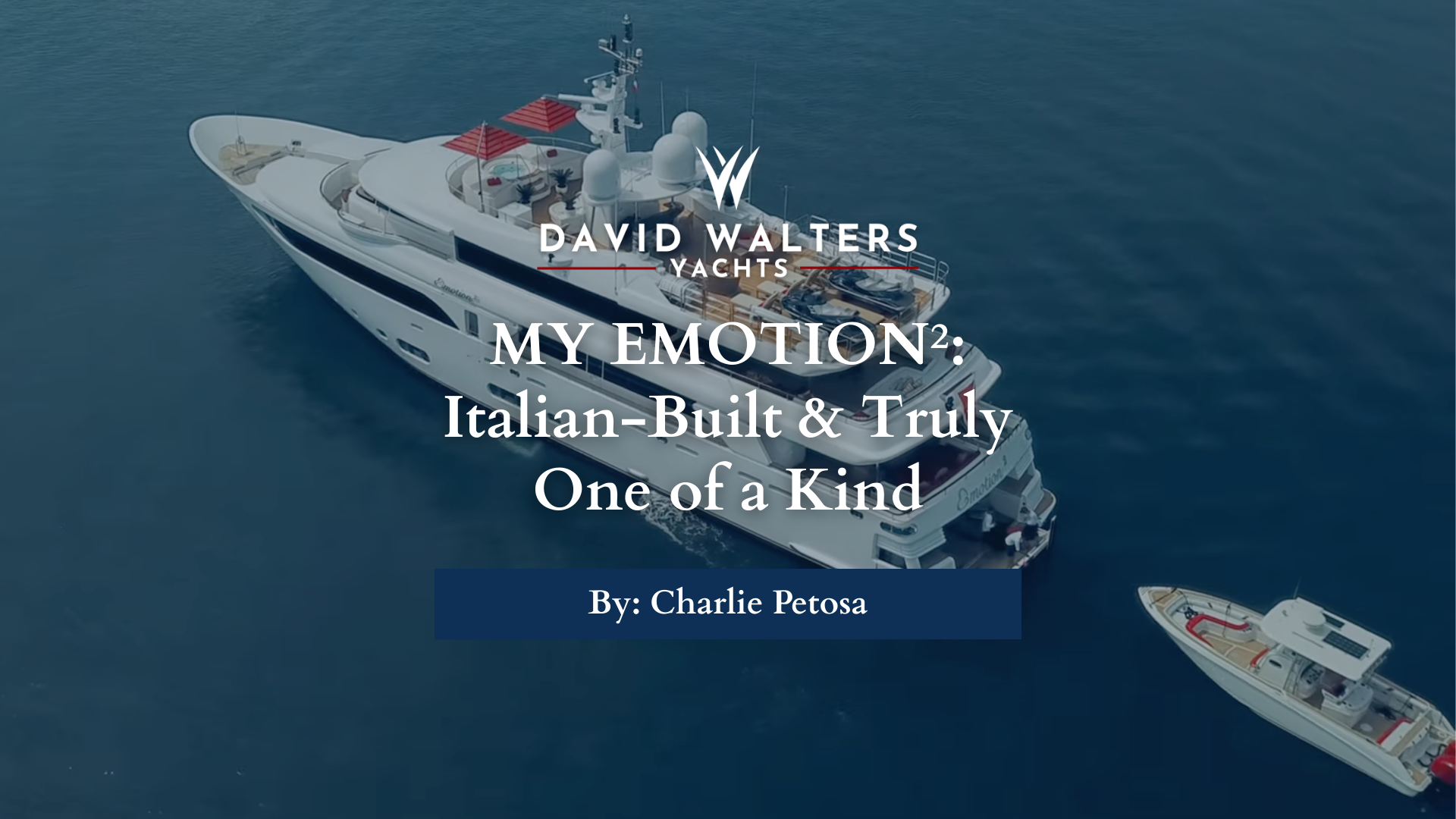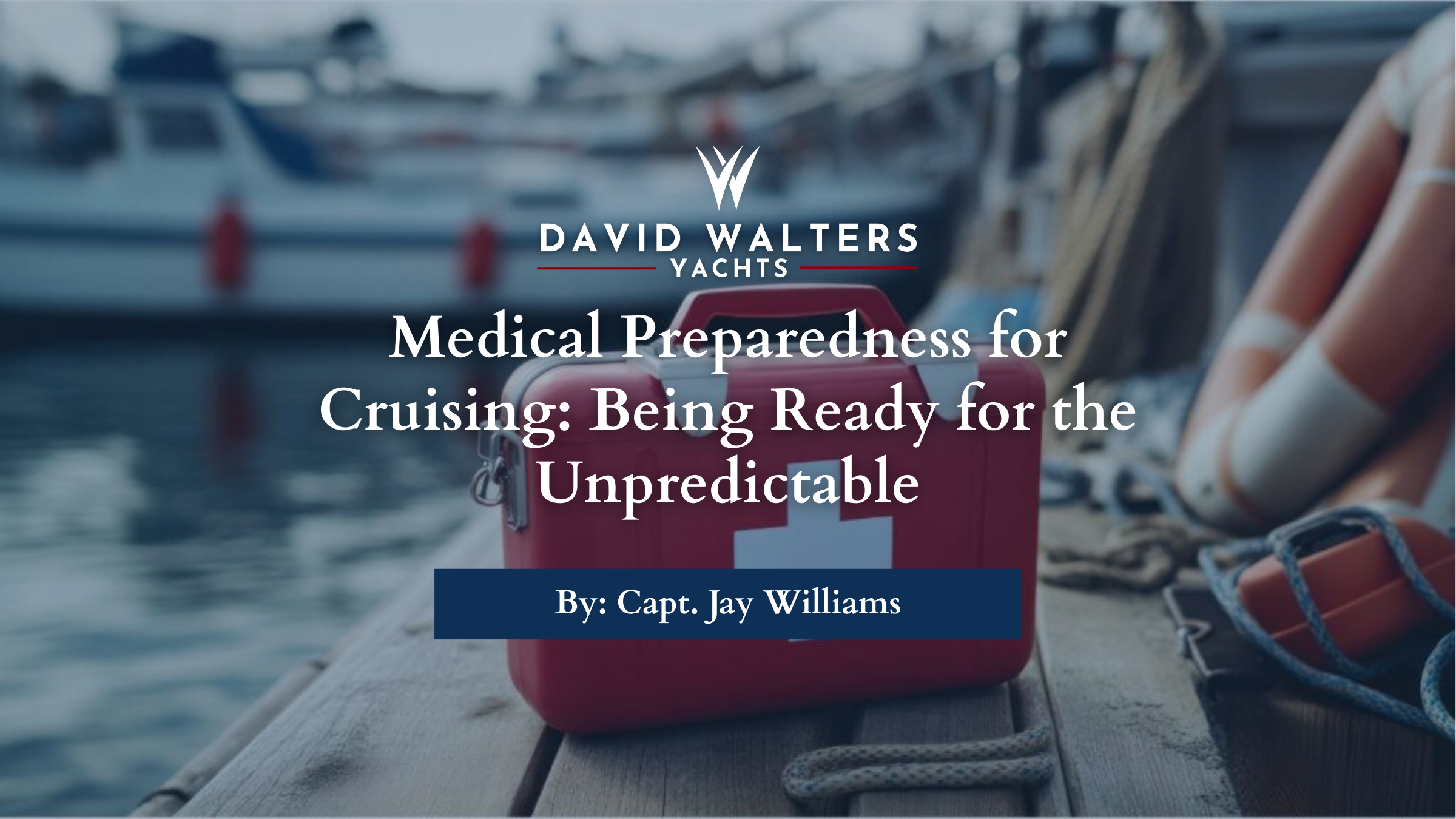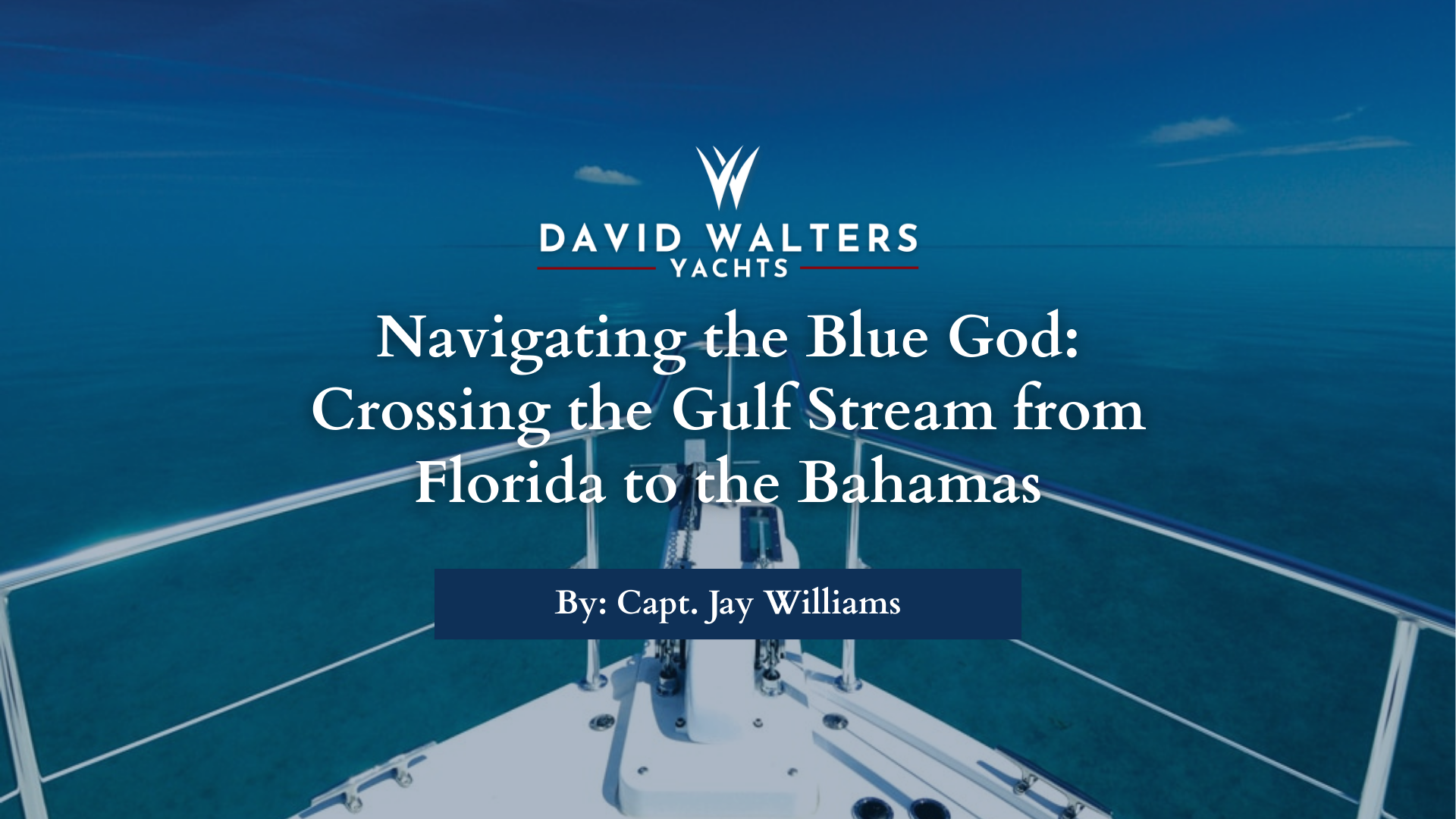Trying to Reason with Hurricane Season: Yacht Insurance and Prepping for Storms
Blame it on the weatherman: it can be a yacht owner's worst nightmare when a storm on the sea picks up speed and a name and heads straight for your boat's harbor. Yacht ownership comes with a lot of joy, freedom, and adventure, but also a hefty amount of responsibility, especially when hurricane season comes into play. As another season approaches, we sat down with yacht insurance broker Hugo Hanham-Gross of Hanham Insurance Agency to talk about the ins and outs of getting insured, including the hurricane preparedness plans that insurance carriers want to see.
Why Yacht Insurance Is Important
Insuring your yacht is a no-brainer: you want to protect your investment. Insurance may not be required as far as particular state laws go, but many marinas don't allow uninsured boats to dock, and for good reason: the sky is the limit for how much damage a boat can do to someone else's property. Most insurance policies are comprehensive and will include hull coverage for the boat itself, coverage for the personal property on board, coverage for your tender, liability coverage, and uninsured boater coverage. Uninsured boaters who cause property damage can be held liable for tens of thousands of dollars (or more), which they must pay out of their own pocket if they're in an accident. No one wants to be stuck with a bill like that. Yacht insurance is a necessary part of yacht ownership responsibility, to protect yourself and anyone or anything around your boat.
.png?width=898&height=449&name=unnamed%20(4).png)
What affects rates?
Your rate depends on a variety of factors, including the value of the boat, your hurricane plan, and how many years of experience you have with boats. Now let's discuss what shopping for insurance looks like.
Getting Insured
There is a lot of information out there on the internet, but what you don't want to do when you're looking to get insured is fling a bunch of online applications out into the ether without talking to a broker first. Ideally, you should develop a relationship with a trusted insurance broker who specializes in yacht insurance (not the broker who does your homeowners policy) early in the process of buying a boat. A good broker will ask you questions and anticipate each step and what you will need, saving you precious time. For example, if you're financing a boat, your lender will have deductible requirements that your broker needs to know before writing your policy to avoid costly delays.
It's important to be clear and honest about your intended goals with your broker: if you plan to live aboard your boat full-time, they need to know that to correctly place coverage and help you answer carrier questions. Some carriers won't insure liveaboards, and some define liveaboards differently. Your broker can help you understand what carriers need to see in your plans to avoid denied claims.
.png?width=898&height=449&name=unnamed%20(5).png)
How to Be Insurable
It's a tough market out there, and many carriers will not insure new yacht owners who have never owned a boat before. But even if your experience is limited, there are things you can do to make yourself more attractive to insurance carriers.
- Get experience. Take lessons, charter a boat, or spend time on friends' boats to build your boating resume. Insurance companies will look at you more favorably if you can demonstrate that you've made an effort to become a competent, safe boater. Chartering a boat is a great way to get a lot of experience in a concentrated amount of time. Three to four weeks can be enough to get a captain's sign-off that you know your way around a boat, but if you only have one week of experience, you're uninsurable
- Buy a newer boat. Older boats are seen as riskier and usually come with higher premiums or deductibles to reflect that. If you're financing a boat, this can cause issues with your lender's deductible requirements, so buying a boat 15 years or newer can help ensure that you have a smoother closing process.
- Create a specific hurricane plan. This should include where the boat will go in the event of a storm, how you will prep the boat itself in terms of stowing loose items, taking down sails, etc., and what your backup plan is if your primary plan falls through.
- Work with a good insurance broker who understands your goals and situation. A good broker can advocate for you with carriers and help present you as a potential boat owner in the best light possible. Remember: don't submit online applications before speaking to a broker, especially if you haven't owned a boat before. It's a bummer when a broker makes a phone call to a carrier to talk them through your experience only to find out that they already denied you through an online application and won't be able to give another quote.
Location, Location, Location
A huge factor in insurance premiums is where your boat will live most of the year, but most critically during hurricane season. Higher-risk locations mean higher insurance rates, so keeping your boat in Florida year-round is the most expensive option. North of the Georgia-Florida state line is where you start to see a reduction in rates, and the further north, the better, with North of Cape Hatteras being ideal come hurricane season. Going south of the Caribbean to the ABC islands of Aruba, Bonaire, and Curacao can also be a rate-reducing hurricane plan.
.png?width=898&height=457&name=unnamed%20(6).png)
Boat Types
Different types of boats can be more or less expensive to insure. Motorboats tend to have the lowest rates, with sailboats coming in second, followed by catamarans. In general, monohulls are easier to insure.
Preparing for a Storm
Even if you dock full-time in the Chesapeake, hurricanes can still wreak havoc north of Cape Hatteras. Insurance carriers want to know where your boat will go in the face of a storm no matter where you cruise, and how you plan to secure your boat. You need to have a clear outline of what steps you will take when a hurricane warning goes out. For both insurance carrier requirements as well as your peace of mind, it must be a plan that can be followed, because when a hurricane is bearing down on you, everyone is scrambling to take care of their own property; no one is going to be there to help you if you're not prepared.
Think through what you will do to prepare the boat itself. What items need to be stowed, what equipment should be secured, and what systems can be protected? Refer to your carrier guidelines to understand what preparations they particularly want to see, such as putting extra fenders out, taking sails down and stowing them, charging your battery to power the bilge pumps, and securing your boat to the dock properly. If you want your hurricane plan to be a haul-out, you need to know exactly who is towing your boat out of the water and where it is going. That means reserving a spot with a shipyard now and paying a retainer to save a spot for your boat.
If you plan to keep your boat in a marina, insurance carriers want to know which marina. How protected is it? How secure are your dock and the cleats? Does your marina allow boats to stay during a hurricane, or do you need a backup plan? Is your neighbor's boat secured? You may want to bake in a plan for securing nearby boats that could hit yours if their owners haven't been able to take care of their hurricane prep.
The last thing you or an insurance carrier wants is for your boat to be stuck at anchor in a hurricane, so you need to have a very clear plan of how you will avoid that nightmare scenario. Even if you are a full-time cruiser, you too must have a plan for where you'll take your boat in a hurricane.
The yacht life is a good life, and one worth properly protecting. The benefits of yacht ownership go hand in hand with the responsibilities of keeping yourself, your boat, and the property around your boat safe, whether the waters are calm or a storm is brewing. Working with a knowledgeable, specialized yacht insurance broker early on in your yacht-buying search can help set you up for successful boat ownership for years to come.
Get in touch with Hugo Hanham-Gross with any questions about boat coverage options and yacht safety from a yacht insurance broker's perspective. Email hugo@hanhaminsurance.com to reach out. And from David Walters Yachts, we give Hugo a hearty thank you for sharing his time and expertise with us!









LEAVE A COMMENT